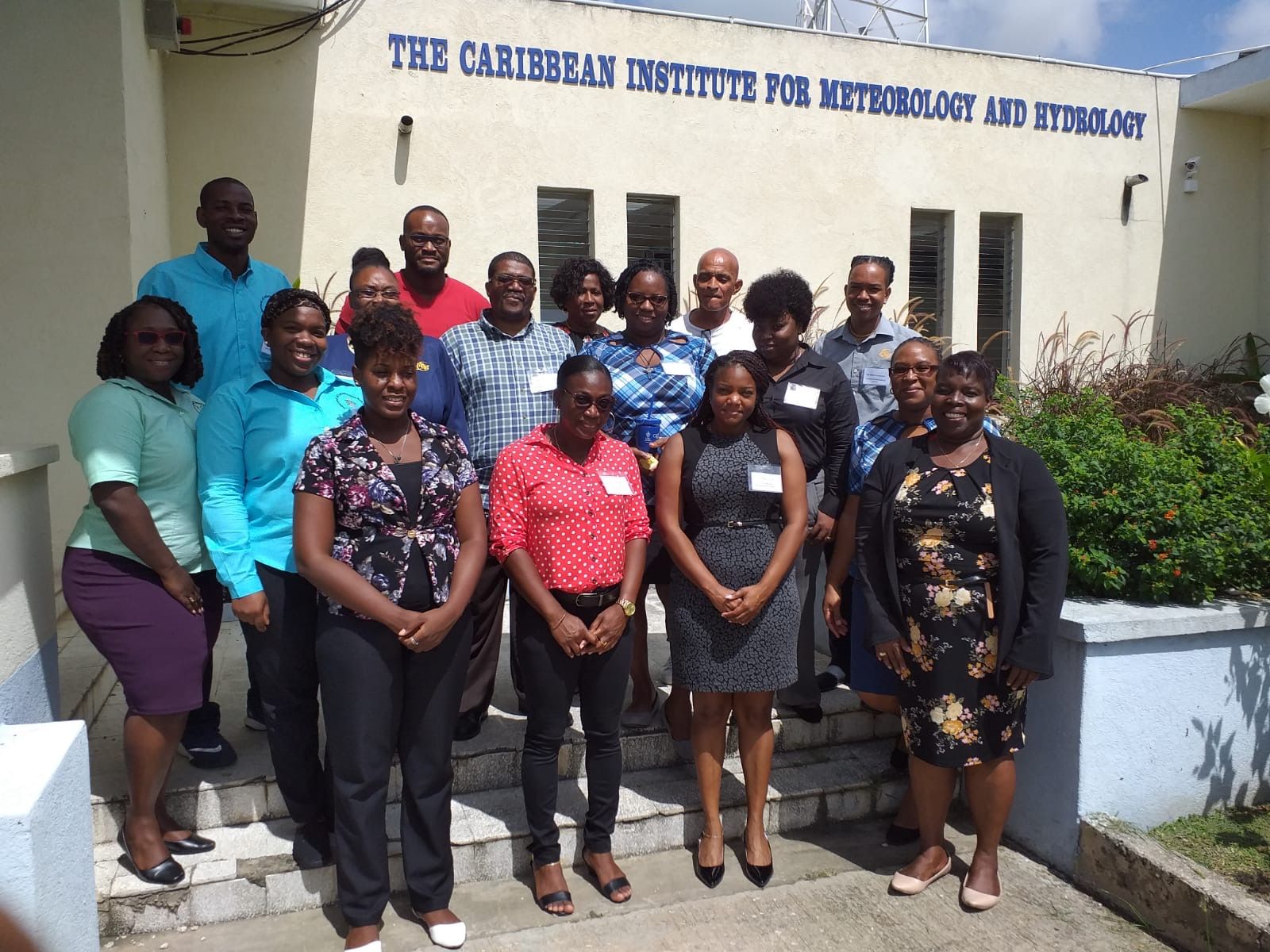Strengthening Capacities in the Forecasting of Natural Hazards in the OECS
OECS Media Release
The first Mid-Level Meteorological Officers Continuing Professional Development Training concluded successfully in Barbados.
The five day workshop was coordinated by the OECS Commission in collaboration with two entities who provided financial support and technical assistance, namely, the Caribbean Community Climate Change Centre (5Cs) and the Caribbean Institute for Meteorology and Hydrology (CIMH).
The training sought to contribute towards the enhancement of human capacity in the areas of meteorology and climatology in the OECS, thereby improving the forecasting of extreme natural hazards.
Hence, the workshop brought together 14 Mid Level Meteorologists from across the Eastern Caribbean for a training session centered on five (5) main areas, inter alia:
-
Ensuring the quality of meteorological observational data;
-
Interpreting next generation satellite imagery;
-
Collecting and archiving data to assist in monitoring climate change;
-
Monitoring, understanding and discussing Caribbean issues related to climate variability and change; and
-
Interpreting cyclone advisories and warnings as well as impact based warning.
OECS Environmental Programme Officer, Josette Edward-Charlemagne, highlighted the importance of the workshop, in light of the increased intensity of natural disasters which have impacted the region in recent years.
“As a result of climate change, extreme hydrological and meteorological events, such as hurricanes, droughts and floods, are projected to become more severe in the coming decades. The improvement of our ability to predict these events and to anticipate their impacts is critical to providing an advanced response at the local and regional levels, and to building a stronger resilience.” Josette Edward-Charlemagne said.
This first training session will be followed by a series of workshops focusing on:
-
Building the capacities of future regional meteorologists;
-
Supporting the Weather and Climate Ready Nation concept in the region;
-
Establishing impact-based forecasting and warning services to enable advanced preparedness of decision-makers, communities and individuals; and
-
Ensuring the collection of quality meteorological data that will contribute to the development of early and reliable warnings of severe weather, fluctuations in air quality, and climate variability and change.




